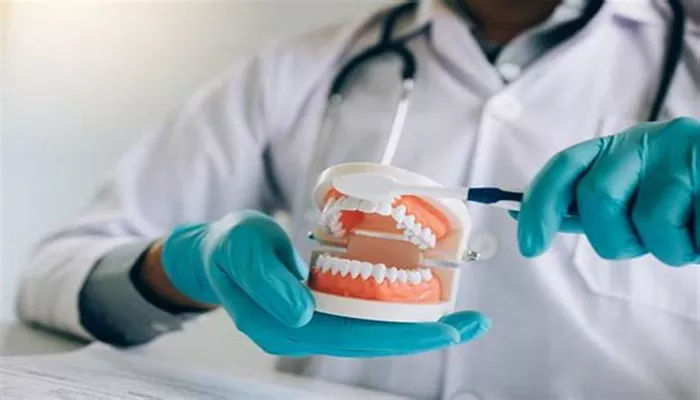Periodontal disease, commonly known as gum disease, is a serious dental condition that affects the gums and supporting structures of the teeth. It can lead to tooth loss and other health complications if left untreated. Many people wonder how long it takes for periodontal disease to develop. In this article, we will explore the timeline of periodontal disease, its stages, risk factors, and prevention strategies.
What Is Periodontal Disease?
Periodontal disease is an infection of the tissues that surround and support the teeth. It begins with gingivitis, the earliest form of gum disease, which is characterized by inflammation of the gums. If gingivitis is not treated, it can progress to periodontitis, a more severe form of gum disease that can damage the bone and tissue supporting the teeth.
see also: How Do You Get Periodontal Disease
Stages of Periodontal Disease
Gingivitis: This is the initial stage of gum disease. It occurs when plaque, a sticky film of bacteria, accumulates on the teeth and gums.
Gingivitis is often painless and may go unnoticed. Common symptoms include red, swollen gums that bleed when brushing or flossing.
Gingivitis can develop within a few days to weeks of poor oral hygiene.
Early Periodontitis: If gingivitis is not addressed, it can progress to early periodontitis. This stage involves deeper gum inflammation and the beginning of bone loss. Symptoms may include persistent bad breath, gum recession, and pockets forming between the teeth and gums. This stage can develop within a few months to a year of untreated gingivitis.
Moderate Periodontitis: At this stage, the damage to the gums and bone becomes more significant. There may be noticeable tooth mobility, increased gum recession, and deeper pockets. Moderate periodontitis can develop over several years of untreated early periodontitis.
Advanced Periodontitis: This is the most severe stage of periodontal disease. The supporting bone and tissue are severely damaged, leading to tooth loss. Symptoms include severe gum recession, loose teeth, and abscess formation. Advanced periodontitis can take years to develop, often occurring after a decade or more of untreated gum disease.
How Long Does It Take to Develop Periodontal Disease?
The timeline for the development of periodontal disease varies from person to person. Several factors influence how quickly gum disease progresses:
Oral Hygiene Practices: Regular brushing and flossing can significantly slow down the development of periodontal disease. Poor oral hygiene allows plaque to accumulate, leading to gingivitis and, eventually, periodontitis.
Genetics: Some individuals are genetically predisposed to gum disease. If you have a family history of periodontal disease, you may be at a higher risk of developing it more quickly.
Lifestyle Factors: Smoking, poor nutrition, and lack of exercise can contribute to the progression of periodontal disease.
Smoking, in particular, is a significant risk factor that can accelerate gum disease development.
Medical Conditions: Certain health conditions, such as diabetes, autoimmune diseases, and hormonal changes (like pregnancy or menopause), can increase the risk of periodontal disease and affect its progression.
Age: The risk of developing periodontal disease increases with age. Older adults may have a higher likelihood of experiencing gum disease due to cumulative factors over time.
The Importance of Early Detection
Early detection and treatment of periodontal disease are crucial for preventing its progression. Regular dental check-ups allow your dentist to monitor your gum health and identify any early signs of gum disease. During these visits, your dentist may perform a thorough examination of your gums, measure pocket depths, and assess any bone loss.
If gingivitis is detected early, it can often be reversed with improved oral hygiene practices and professional cleanings.
However, once periodontitis develops, treatment becomes more complex and may involve deep cleaning procedures, scaling and root planing, and possibly surgical interventions.
Prevention Strategies
Preventing periodontal disease is much easier than treating it. Here are some effective strategies to maintain healthy gums:
Practice Good Oral Hygiene: Brush your teeth at least twice a day with fluoride toothpaste and floss daily. This helps remove plaque and food particles that can lead to gum disease.
Regular Dental Visits: Schedule dental check-ups and cleanings every six months, or as recommended by your dentist.
Professional cleanings help remove tartar buildup that regular brushing cannot address.
Quit Smoking: If you smoke, seek help to quit. Smoking is a significant risk factor for periodontal disease and can hinder healing.
Eat a Balanced Diet: A healthy diet rich in vitamins and minerals supports gum health. Foods high in vitamin C, such as citrus fruits and leafy greens, can help strengthen gums.
Stay Hydrated: Drinking plenty of water helps maintain saliva production, which is essential for neutralizing acids and washing away food particles.
Manage Stress: High-stress levels can weaken your immune system, making it harder for your body to fight infections, including gum disease.
Control Medical Conditions: If you have diabetes or other health issues, work with your healthcare provider to manage these conditions effectively.
Conclusion
Periodontal disease is a common yet preventable condition that can have serious consequences for oral and overall health.
The timeline for developing periodontal disease varies based on individual factors, but it can progress from gingivitis to advanced periodontitis over several months to years if left untreated.
By practicing good oral hygiene, visiting the dentist regularly, and adopting a healthy lifestyle, you can significantly reduce your risk of developing gum disease. Remember, early detection and intervention are key to maintaining a healthy smile and preventing the progression of periodontal disease.

